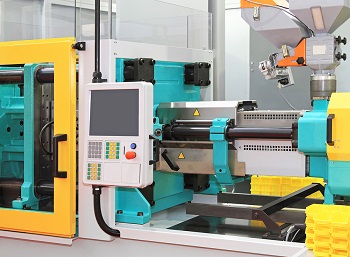IMARC Group, a leading market research company, has recently releases report titled “Injection Molding Machines Market: Global Industry Trends, Share, Size, Growth, Opportunity and Forecast 2023-2028.” The study provides a detailed analysis of the industry, including the global injection molding machines market size, share, growth, trends, and forecasts. The report also includes competitor and regional analysis and highlights the latest advancements in the market.
What is Injection Molding Machines?
Injection molding machines (IMM) or injection presses are mechanical devices that introduce molten materials, such as glass, metal, elastomers, and thermoplastic polymers, into a mold for the purpose of producing large quantities of identical items. They are available commercially in various system types, including standard, multi-component, and liquid silicon rubber (LSR). The operation of IMMs relies on diverse power sources, enabling them to provide flexibility, durability, enhanced precision, optimal strength, aesthetic appeal, and customization. Owing to these advantageous features, they are used in the production of syringes, power tool casings, telephone handsets, car bumpers, disposable razors, and electrical switches. Consequently, IMMs find extensive applications across several sectors, such as automotive, packaging, electronics, consumer goods, etc.
How Big Is the Injection Molding Machines Market?
The global injection molding machinesmarket size reached US$ 11.2 Billion in 2022. Looking forward, IMARC Group expects the market to reach US$ 15.3 Billion by 2028, exhibiting a growth rate (CAGR) of 5.27% during 2023-2028.
Global Injection Molding Machines Market Trends and Drivers:
The injection molding machines market is primarily driven by the expanding usage of the product to manufacture intricate polymer components with high precision and complex shapes. Additionally, the elevating production of large quantities of medical supplies, including air systems and syringes, is also positively influencing the global market. Another significant growth-inducing factor is the shifting preferences toward all-electric injection molding machines, which offer multiple advantages such as energy efficiency, precise operation, high speed, reusability, and low maintenance requirements. Apart from this, the growing incorporation of the Internet of Things (IoT) and information and communication technology (ICT) solutions to improve manufacturing processes and overall product quality is further augmenting the market growth. Moreover, other factors, which include rapid urbanization and industrialization in emerging economies, escalating collaborations between key industry players, and the inflating government investments in research and development (R&D) activities to introduce advanced automated machines, will continue to propel the injection molding machines market in the coming years.
Request a Free PDF Sample for more detailed market insights: https://www.imarcgroup.com/injection-molding-machines-market/requestsample
What Is Included In Market Segmentation?
The report has been segmented the market into following categories:
Breakup by Machine Type:
- Hydraulic
- Electric
- Hybrid
Breakup by Material:
- Plastics
- Metals
- Others
Breakup by Application:
- Automotive
- Consumer Goods
- Packaging
- Electronics
- Others
Breakup by Region:
- North America (United States, Canada)
- Asia Pacific (China, Japan, India, South Korea, Australia, Indonesia, Others)
- Europe (Germany, France, United Kingdom, Italy, Spain, Russia, Others)
- Latin America (Brazil, Mexico, Others)
- Middle East and Africa
The report provides a comprehensive analysis of the industry key players listed below:
The Major Players in the market are Arburg GmbH + Co. KG, Chen Hsong Holdings Limited, Engel Holding Gesellschaft mbH, Haitian International, Japan Steel Works Ltd., KraussMaffei (China National Chemical Corporation), Milacron Holdings Corp. (Hillenbrand Inc.), Nissei Plastic Industrial Co. Ltd., Shibaura Machine Co. Ltd., Sumitomo Heavy Industries Ltd., Toyo Machinery & Metal Co. Ltd. and Ube Machinery Corporation Ltd. (Ube Industries Ltd.).
Key highlights of the Report:
- Market Performance (2018–2023)
- Market Outlook (2023-2028)
- COVID-19 Impact on the Market
- Porter’s Five Forces Analysis
- Historical, Current and Future Market Trends
- Market Drivers and Success Factors
- SWOT Analysis
- Structure of the Market
- Value Chain Analysis
- Comprehensive Mapping of the Competitive Landscape
TOC for the Report:
- Preface
- Scope and Methodology
- Executive Summary
- Introduction
- SWOT Analysis
- Value Chain Analysis
- Price Analysis
- Competitive Landscape
Conclusion
The vegan supplements market is poised for continued growth as more people adopt plant-based diets and prioritize health and sustainability. Innovations in product formulations, increased consumer education, and a growing awareness of nutrient deficiencies are likely to fuel market expansion. To thrive in this competitive landscape, manufacturers will need to focus on quality, sustainability, and meeting the diverse dietary needs of consumers. As the world embraces plant-based living, vegan supplements play a vital role in ensuring that individuals can maintain optimal health while adhering to their ethical and environmental values.

